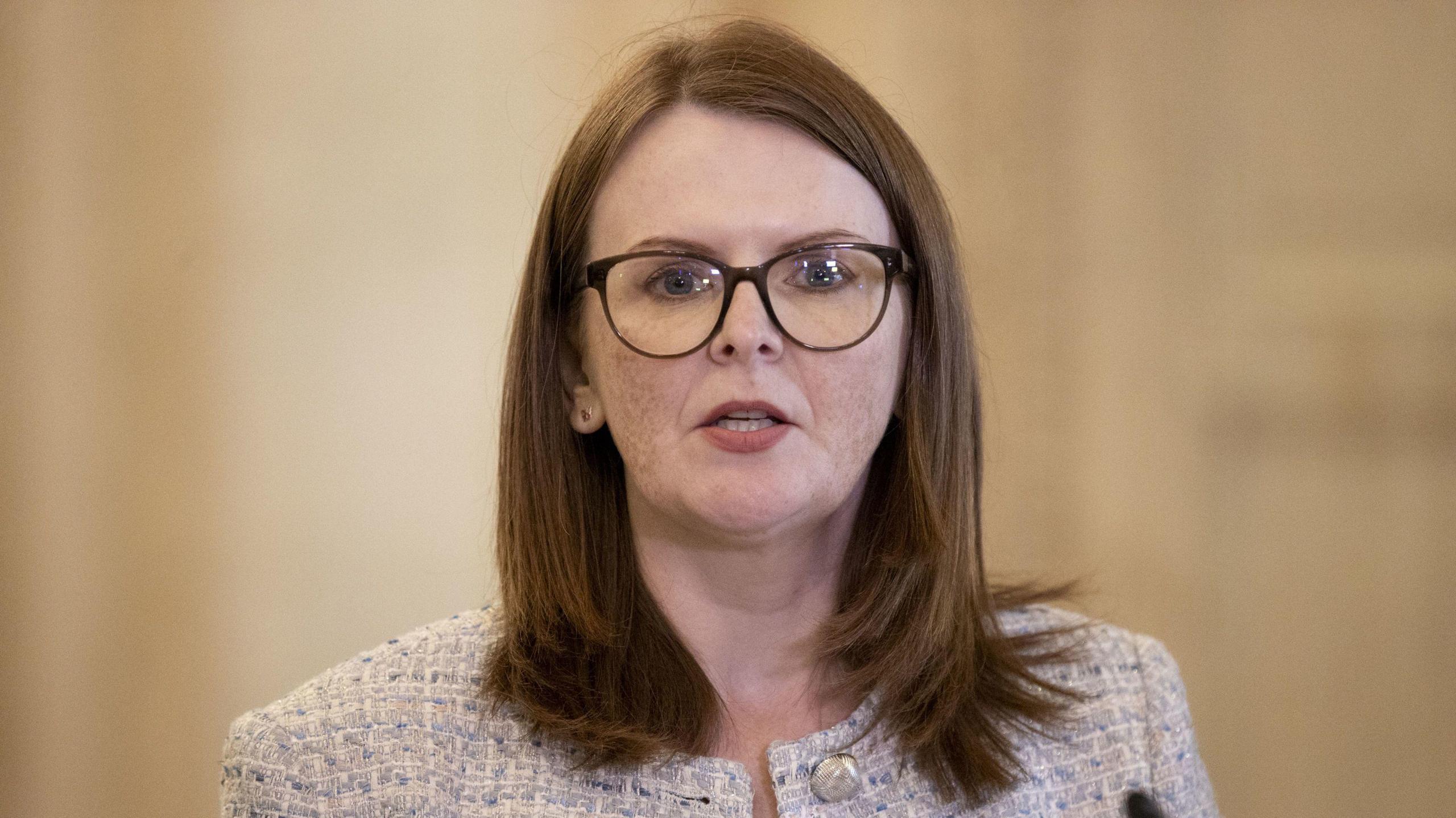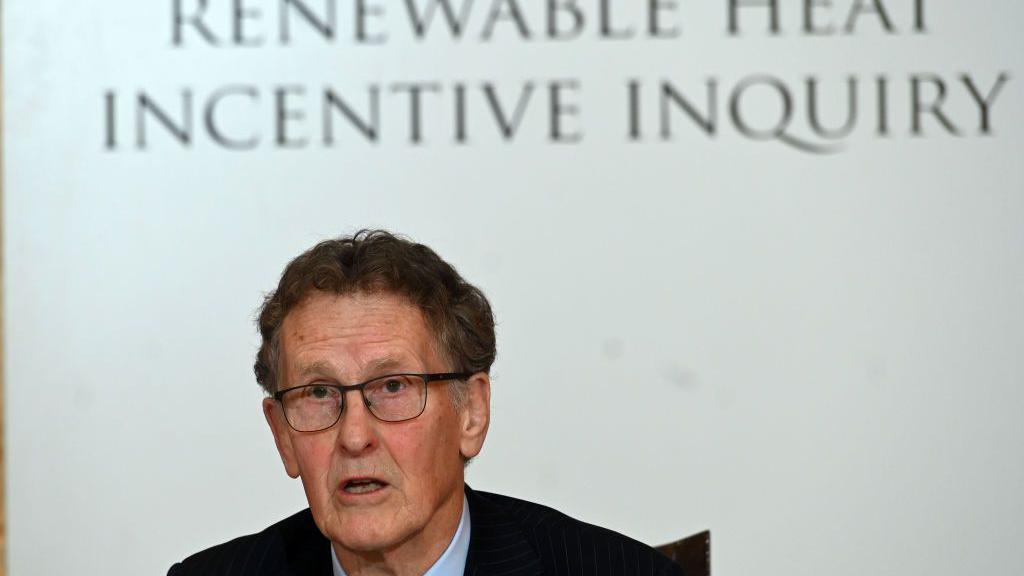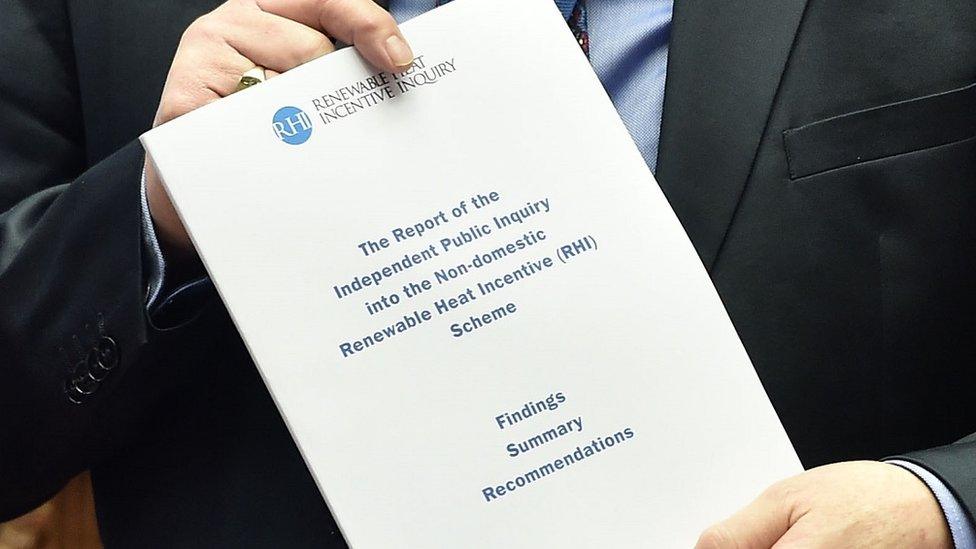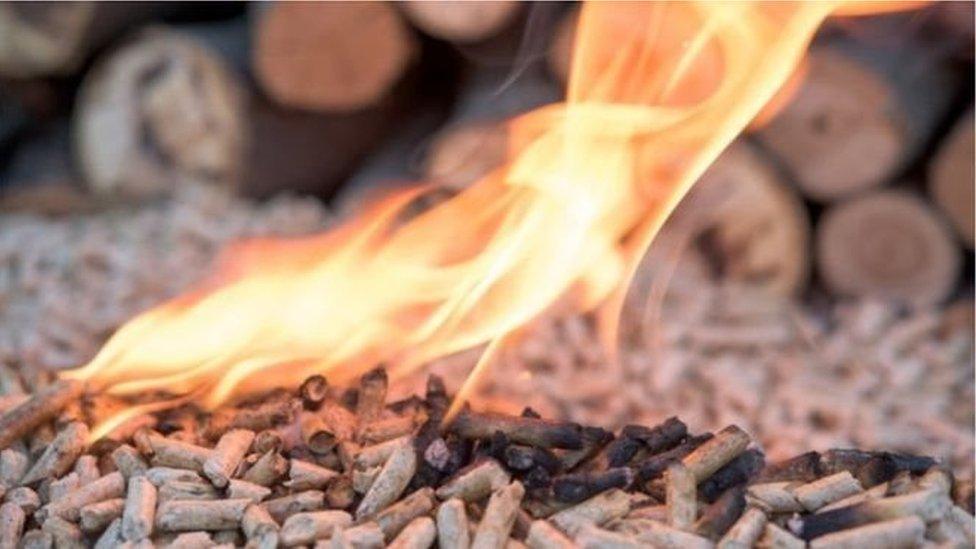'Cash for ash' scheme closure and compensation to cost £196m

Archibald said she will introduce new legislation to wind down the scheme, which will take effect by next April
- Published
Closing the Renewable Heat Incentive (RHI) scheme and compensating participants is expected to cost £196m over the next 10 years, Stormont's economy minister has said.
On Monday Caoimhe Archibald said she will introduce new legislation to wind down the scheme, which will take effect by next April.
The Stormont parties had agreed to shut the scheme as part of 2020's New Decade, New Approach deal., external
However, the move was delayed due to the Covid pandemic and disagreement among parties about how to bring the arrangements to an end.
The minister said that instead of receiving a single, one-off payment, compensation would be staggered to participants over a period of 10 years.
The department will also publish a public consultation on the closure arrangements shortly, which will run for eight weeks.
There are some 1,200 participants in the non-domestic scheme who will be entitled to receive a "closure payment".
Buying out the businesses was previously estimated by the Department for the Economy (DfE) to cost £68m.
Archibald said the executive had agreed an uplift in the tariffs to participants that will take effect this coming winter, as work on closing the scheme progresses.
The department has not yet stated what the increased uplift would be, although it estimates that existing participants - depending on their boiler usage - could receive between £6,000 and £8,000 a year.
The minister said the plan, which was agreed by the Stormont Executive last week, strikes a "fair and responsible balance" in recognising the interests of participants who entered the scheme in good faith while safeguarding the interests of the taxpayer.
With the scheme shutting down, the department will be looking at "alternative support measures" for renewable heating.
'First steps'
Andrew Trimble, chair of the Renewable Heat Association, said Monday's development was positive.
"We've now got some confidence and there seems to be an appetite across all political parties to resolve this once and for all," he said.
"All the parties seem to be enthusiastic about reaching closure."
He added: "These are first steps, let's hope that the momentum can be sustained."
What was the RHI scandal?

Sir Patrick Coghlin led the inquiry into the running of the scheme
The RHI scheme paid 1,200 businesses to switch from oil and gas to what was meant to be environmentally-friendly heating, using wood pellet boilers.
However, the subsidy payment was higher than the cost of the fuel, creating an incentive to use the boilers to generate income.
It became known as the "cash-for-ash" scandal.
Some businesses invested heavily in the scheme after it opened in 2012, installing multiple boilers on their properties to take advantage of a lucrative 20-year subsidy offer.
It was so popular it became oversubscribed.
That coupled with a lack of cost controls from its inception meant that by 2016 Stormont was facing a multi-million pound overspend.
The revelations caused a political crisis that led to a temporary collapse of Northern Ireland's devolved government in January 2017.
At one point the overspend was projected to reach as much as £700m but after reform of the scheme and significant cuts to subsidy rates the actual overspend was about £30m.
A public inquiry into the running of the RHI scheme was set up in 2017 and this cost taxpayers a further £13m.
The inquiry concluded that it was not corruption that led to the scheme running out of budgetary control but rather flaws in its design as well as errors and lack of attention on the part of those responsible for overseeing it.
Three years after it collapsed over the RHI controversy, Stormont was restored in January 2020 under the New Decade, New Approach agreement.
That 2020 agreement stated the RHI scheme should be closed down and replaced with a new scheme that "effectively cuts carbon emissions".
- Published13 March 2020

- Published3 March 2022
